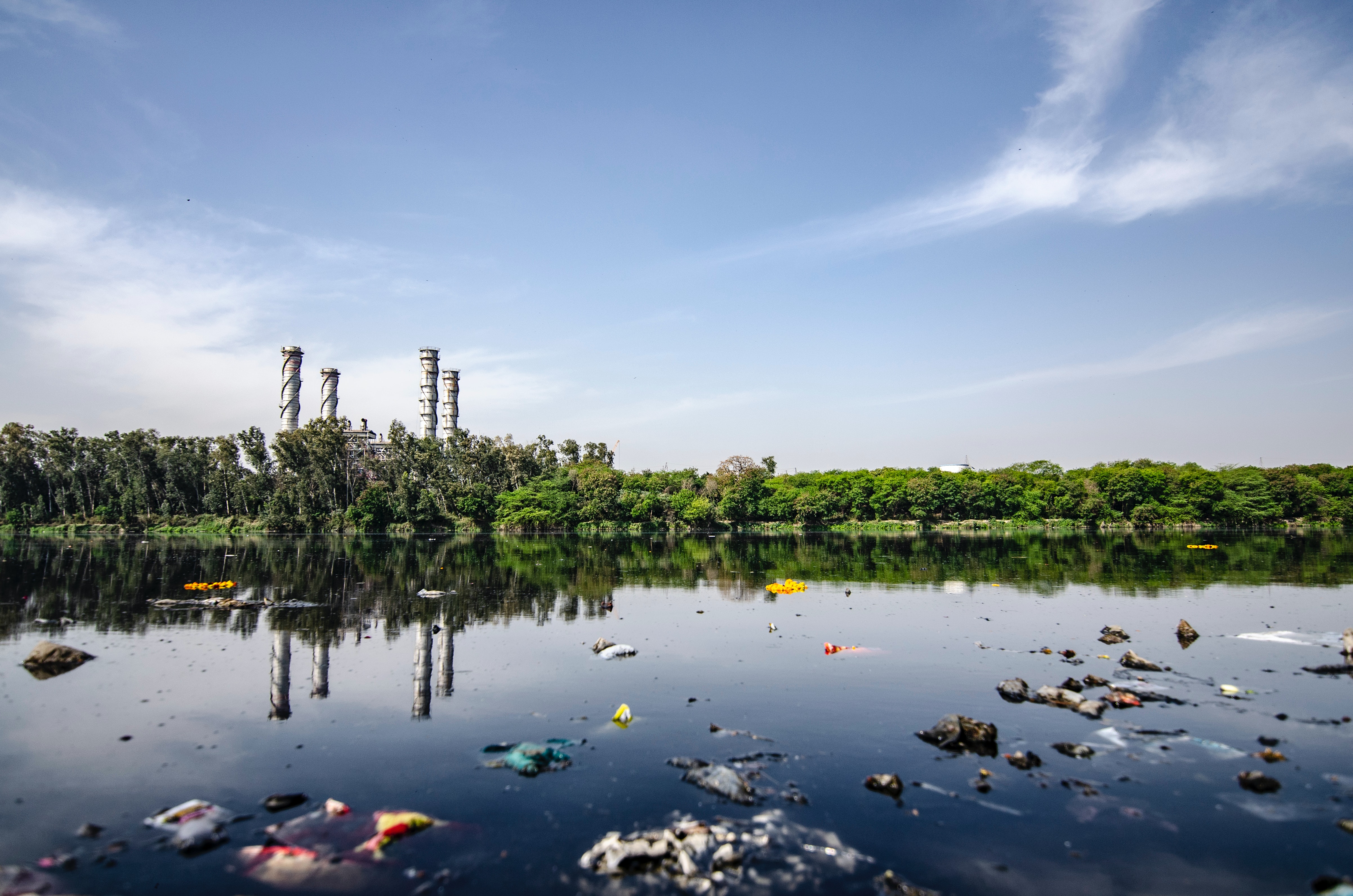Water Pollution
Water pollution (or aquatic pollution) is the contamination of water bodies, usually as a result of human activities, so that it negatively affects its uses. Water bodies include lakes, rivers, oceans, aquifers, reservoirs and groundwater.

Water pollution results when contaminants are introduced into these water bodies. Water pollution can be attributed to one of four sources: sewage discharges, industrial activities, agricultural activities, and urban runoff including stormwater. It can be grouped into surface water pollution (either fresh water pollution or marine pollution) or groundwater pollution.
For example, releasing inadequately treated wastewater into natural waters can lead to degradation of these aquatic ecosystems. Water pollution can also lead to water-borne diseases for people using polluted water for drinking, bathing, washing or irrigation. Water pollution reduces the ability of the body of water to provide the ecosystem services such as drinking water that it would otherwise provide.
Water pollution is a major global environmental problem because it can result in the degradation of all aquatic ecosystems - fresh, coastal, and ocean waters. The specific contaminants leading to pollution in water include a wide spectrum of chemicals, pathogens, and physical changes such as elevated temperature. While many of the chemicals and substances that are regulated may be naturally occurring (calcium, sodium, iron, manganese, etc.) the concentration usually determines what is a natural component of water and what is a contaminant. High concentrations of naturally occurring substances can have negative impacts on aquatic flora and fauna. Oxygen's depleting substances may be natural materials such as plant matter (e.g. leaves and grass) as well as man-made chemicals.